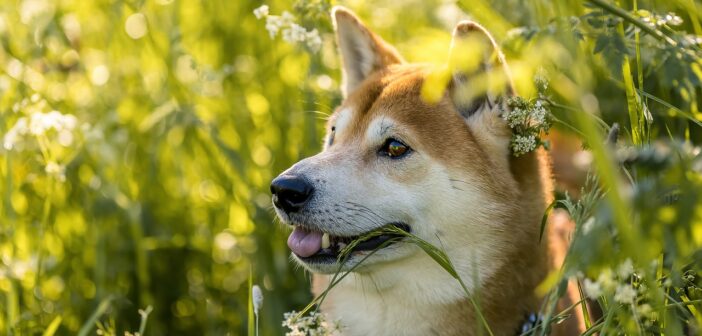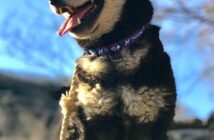Adopting a dog is exciting—but bringing home a Shiba Inu? That’s a whole different ballgame. Known for their fox-like looks, sassy attitude, and fierce independence, Shibas aren’t for everyone.
If you’re searching “things to know before adopting a Shiba Inu,” you’re already on the right track. This guide gives you everything you need—from temperament red flags to training quirks, lifestyle fit, and a personal checklist—with real-life experiences, expert input, and U.S.-based data.
🔥 Quick Overview: Should You Adopt a Shiba Inu?
| Key Trait | What It Means for You |
|---|---|
| Independent | Not a cuddly lapdog. Likes space and freedom. |
| Stubborn | Obedience training is a test of patience. |
| High Prey Drive | Not ideal for homes with cats or small pets. |
| Clean Grooming | Acts like a cat—self-cleans and hates dirt. |
| Escape Artist | Needs a fenced yard and secure leash walks. |
🧠 1. Temperament Challenges: Not Your Average Cuddle Pup
Shiba Inus are not your typical friendly dog. They’re loyal, but also aloof. Most first-time dog owners are shocked by how little a Shiba wants to be held or fussed over.
“They don’t come when called—not because they don’t know how, but because they don’t want to,” says Dr. Jeff Werber, Los Angeles-based veterinarian and pet expert 1.
Common Temperament Issues:
- Doesn’t always respond to commands.
- May growl or snap if handled the wrong way.
- Can be aggressive toward same-sex dogs.
📌 Example: Sarah from Austin adopted a 2-year-old Shiba and was heartbroken when her dog ignored her affection. After hiring a trainer, she realized this breed shows love differently—through quiet companionship, not kisses.
🎓 2. Training Quirks: You’ll Need Patience—and Treats
Training a Shiba Inu is like negotiating with a teenager. They’re smart, but not people-pleasers.
“Positive reinforcement is key, but even then, progress can be slow,” says Ian Dunbar, dog behaviorist and author of “Before You Get Your Puppy” 2.
What to Expect:
- May learn commands quickly but refuse to obey.
- Potty training can take longer due to stubborn streaks.
- Socialization must start early to prevent aggression.
🎥 Watch: Shiba Inu Training Tips for Beginners (YouTube)
🏠 3. Lifestyle Fit: Are You Shiba-Ready?
Not every home is a good match for a Shiba Inu. They’re best suited for owners who:
- Live in secure homes with fenced yards.
- Have older kids or no kids.
- Are active, yet understand boundaries.
- Don’t mind less physical affection from pets.
📊 According to the American Kennel Club, Shibas are the 44th most popular breed in the U.S., often adopted by singles, couples, or families with teens 3.
“A Shiba is not a golden retriever. It’s more like a cat with an attitude,” says Amy Burkert, founder of GoPetFriendly.com.
🧾 4. Personal Checklist: Before You Adopt
Here’s a practical pre-adoption checklist tailored for potential Shiba owners in the U.S.
✅ Must-Haves
- 🔒 Secure fencing (6-ft recommended)
- 🐕 Long leash or GPS collar
- 🎾 Toys that stimulate independent play
- 🧠 A training plan or professional trainer
- 🩺 Local vet familiar with the breed
❓ Ask Yourself:
- Do I want a dog that follows me everywhere? (If yes, skip Shiba)
- Am I okay with aloofness?
- Am I ready for a decade-long commitment?
📚 5. U.S.-Based Adoption Tips
Looking to adopt in the U.S.? Great! But don’t rush.
Where to Look:
- National Shiba Inu Rescue: shibas.org
- Petfinder: petfinder.com
- Shiba Inu Rescue Association: savingshibas.com
Many Shibas end up in rescue because owners weren’t prepared. Rescues often provide behavior assessments and support after adoption.
Adoption Fees:
Expect to pay $150–$500 through rescues. Some include spay/neuter, vaccinations, and microchips.
📈 6. Real Case Study: From Chaos to Companionship
Case: James, a Brooklyn-based software engineer, adopted a 1-year-old Shiba named Niko from a local rescue.
“At first, Niko destroyed my shoes, ignored my commands, and tried to run off every chance he got. But after 3 months of consistent training, he mellowed out. Now, he’s calm, proud, and… still ignores ‘come’ commands—but I love him.”
James used a GPS collar, enrolled Niko in positive reinforcement training, and installed baby gates indoors to manage space.
🧬 7. Shiba Health & Lifespan: What to Expect
Shibas live 12–15 years and are generally healthy. But, like all breeds, they have some genetic risks.
Common Issues:
- Allergies
- Patellar luxation
- Glaucoma
🧪 Consider genetic testing through companies like Embark Vet if adopting a puppy.
📣 Expert Tip: Not for Everyone, but Perfect for Some
“This is a dog that makes you earn its love. But once you do, it’s incredibly rewarding,” says Dr. Marty Becker, founder of Fear Free Pets 4.
📍 Final Thoughts: Know Before You Adopt
If you’re still thinking about adopting a Shiba Inu, take a beat. Reflect on whether this independent, proud, and sometimes challenging breed matches your lifestyle.
A Shiba won’t change for you. But if you’re willing to learn, you’ll earn a fiercely loyal, low-maintenance companion unlike any other.
📝 Summary Table
| Factor | Rating | Notes |
|---|---|---|
| Trainability | 3/10 | Needs consistent effort |
| Affection | 4/10 | More cat-like than cuddly |
| Exercise Needs | 6/10 | Daily walks and off-leash caution |
| Apartment Friendly | 7/10 | If trained well and exercised regularly |
| Good with Kids | 5/10 | Older, respectful children only |



